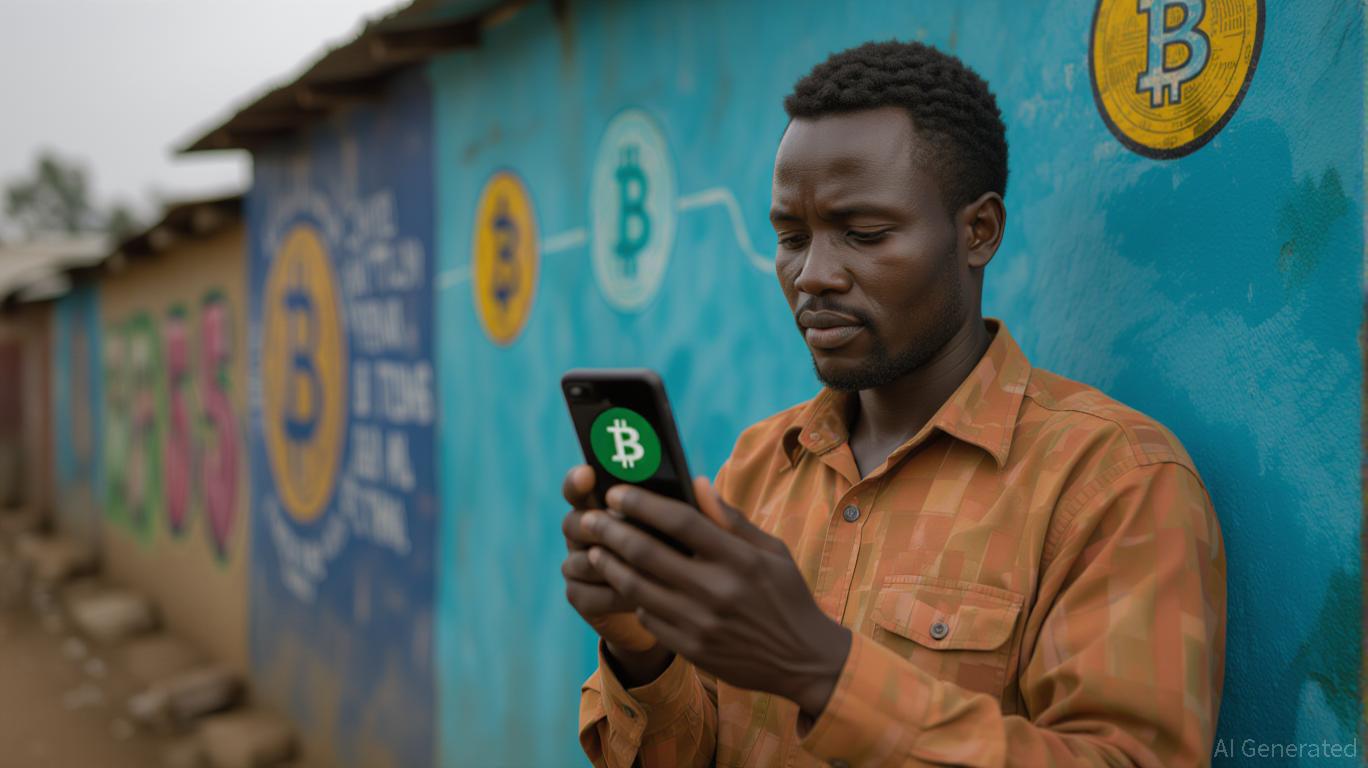
In the heart of Nairobi’s sprawling Kibera slum, a quiet revolution is unfolding. Over 200 residents in Soweto West, a neighborhood within Kibera, now use Bitcoin as a medium of exchange for daily transactions, from purchasing vegetables to paying for community services. This shift is not just a technological experiment—it is a grassroots movement redefining financial inclusion in one of the world’s most underserved regions. AfriBit Africa, a Kenyan fintech organization, has spearheaded this transformation by introducing Bitcoin as a tool for economic empowerment, bypassing traditional banking systems that exclude millions due to lack of documentation or financial capacity.
The Kibera Model: Bitcoin as a Catalyst for Inclusion
AfriBit’s approach is rooted in practicality. By paying local garbage collectors in Bitcoin (sats) and teaching them to use wallets like Tando and Blink, the organization has created a network of early adopters who now educate others. These collectors, many of whom previously relied on nonprofit funding, have become agents of change, demonstrating Bitcoin’s utility as a secure, low-cost alternative to mobile money platforms like M-Pesa. For instance, vegetable vendor Dotea Anyim reports that 10% of her customers now pay in Bitcoin, citing its “zero transaction fees and instant transfers” as key advantages.
The initiative extends beyond individual transactions. Local football teams are funded entirely in Bitcoin, while the Tumaini Dada program empowers women to save and build small businesses using crypto. These efforts are creating a circular economy where Bitcoin is not just a store of value but a tool for community development. By 2025, over 40 merchants in Kibera accept Bitcoin, and AfriBit plans to expand its reach to all 11 villages in the settlement.
DeFi’s Role in Scaling Financial Sovereignty
Decentralized Finance (DeFi) is amplifying Bitcoin’s impact in Kibera. AfriBit’s waste management program, which pays 50 residents in sats for collecting recyclables, is a prime example. Participants must attend Bitcoin literacy sessions, ensuring they understand how to store and transact safely. The project also reinvests proceeds into Bitcoin, creating a self-sustaining cycle. Meanwhile, DeFi platforms are enabling peer-to-peer lending and cross-border remittances, reducing reliance on intermediaries and high fees.
Stablecoins like USDT and USDC are gaining traction as a hedge against the Kenyan shilling’s volatility. For example, small businesses use stablecoins to settle supplier payments and manage savings, avoiding the risks of cash theft and inflation. AfriBit’s upcoming Bitcoin-backed microloan program and Lightning Network wallet tailored for Kibera further underscore DeFi’s potential to address local needs.
Challenges and Regulatory Uncertainty
Despite its promise, Bitcoin and DeFi in Kibera face hurdles. Critics like fintech entrepreneur Ali Hussein Kassim warn of Bitcoin’s volatility, which could expose vulnerable communities to financial instability. Kenya’s regulatory landscape is also evolving: the proposed 3% Digital Asset Tax and lack of clear consumer protections pose risks. However, AfriBit’s focus on education and practical use cases—rather than speculation—mitigates these concerns.
Regulatory clarity will be critical for long-term scalability. Kenya’s Central Bank has shown openness to innovation, but a balanced framework is needed to protect users while fostering growth. Investors should monitor developments in 2026, as regulatory shifts could either accelerate or hinder DeFi’s adoption.
Investment Opportunities in Kibera’s DeFi Ecosystem
The Kibera model offers compelling investment opportunities for those seeking to align capital with social impact. Key areas include:
1. Blockchain Infrastructure: Supporting companies like Blockstream (Lightning Network) and Chainalysis, which enable scalable, secure DeFi solutions.
2. Local Fintech Partnerships: Collaborating with Kenyan crypto firms such as Kipochi or ESG-aligned funds targeting African fintechs.
3. Community-Driven Projects: Directly funding initiatives like AfriBit’s waste management program or coding classes that build local tech talent.
The Future of DeFi in Emerging Markets
By 2035, DeFi could become a cornerstone of financial inclusion in Kibera and beyond. AfriBit’s success demonstrates that decentralized systems can thrive in informal economies, offering a blueprint for replication across Africa’s 400+ slums. For investors, the Kibera model highlights the importance of patience and adaptability—success hinges on addressing liquidity constraints, enhancing digital literacy, and navigating regulatory landscapes.
In a world where 1.4 billion people remain unbanked, Bitcoin and DeFi are not just financial tools but instruments of dignity. Kibera’s story is a testament to the power of decentralized innovation to empower the marginalized. For those willing to bet on the future, the rewards—both financial and societal—are immense.
Investment Takeaway: Allocate capital to blockchain infrastructure and community-driven DeFi projects in emerging markets. Prioritize partnerships with local organizations like AfriBit, and stay attuned to regulatory developments in Kenya and other African nations. The next financial revolution may begin in the streets of Kibera.
You can contact us for more informations or ads here [email protected]


